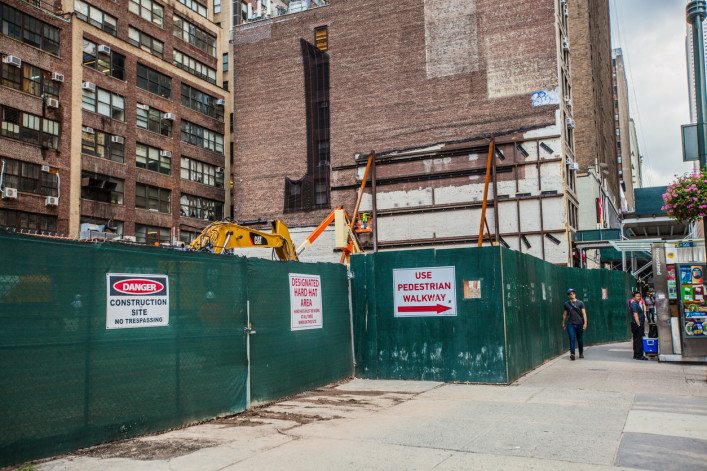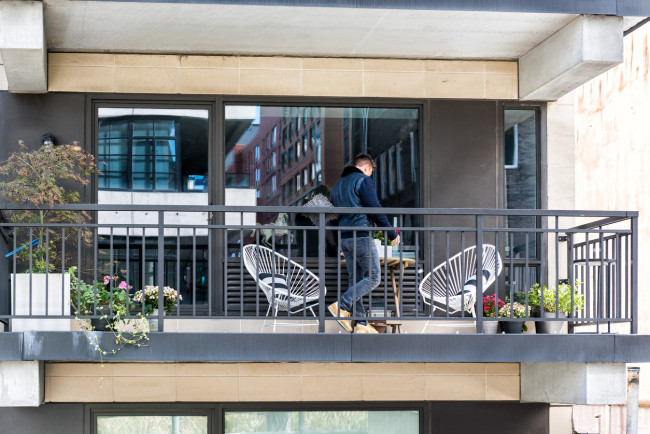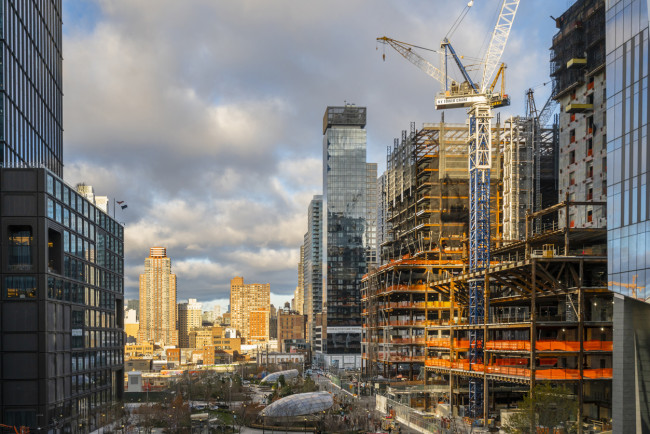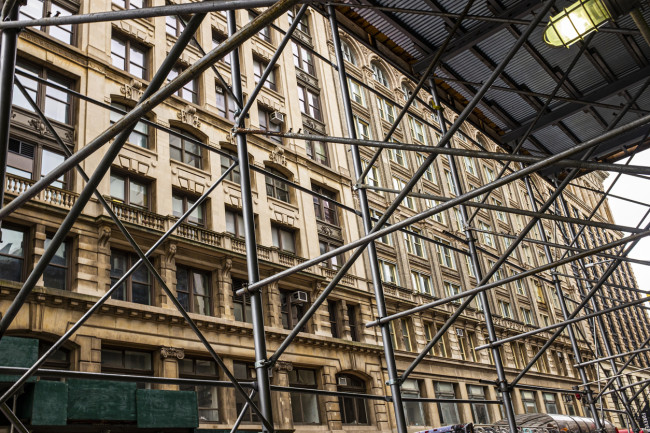What is my landlord responsible for when there is a construction project next door?

This is a situation where renter's insurance comes in handy to protect your stuff and cover you if you need to move out for awhile.
The building next door to mine is being demolished. There's constant noise, and I'm concerned about dust and debris if I open my windows or use my AC. Should I be worried about hazardous conditions? And is my landlord required to accommodate us elsewhere?
If it's not your landlord's project, there's not much you can compel him to do about the resulting noise and dust, our experts say, but it may help to know that the New York City sends inspectors to check on constructions sites for hazardous conditions.
And you can continue to use your air conditioner. According to HVAC professionals, AC units—including the window-mounted units many New Yorkers use—recycle indoor air, rather than pull in outdoor air.
However, there may be valid concerns about leaving your windows open during construction.
"The only hazardous condition that I would flag, aside from the uncomfortable situation with the noise, dust, and debris, would be if any hazardous materials are present such as asbestos," says Jeronimo Aguilar-Gutierrez, vice president of pricing and procurement at Bolster (a Brick sponsor). "If this is case, this is something that is regulated by the Department of Environmental Protection, and any removal would be required to be done following strict protocols."
Another potential issue to watch out for around major construction sites: pests. City inspectors will also be on the lookout for rodents, and your landlord may be able to take steps to prevent their presence as well.
"NYC had a rodent demolition pre-bait requirement, which requires an inspection and possible treatment before a demolition permit is issued. That being said, the real problems occur once construction begins," says Gil Bloom, president of Standard Pest Management.
"It is important for construction sites to adopt rodent protocols, such as standardized trash collection and off-site disposal. As for the neighboring landlords, they should inspect the exterior for any rodent access points and possibly add a bait station or two in the trash area," he says
This is definitely a concern worth raising with your landlord or superintendent. Finally, to further protect yourself, make sure you have a solid insurance policy in place to protect your apartment and your belongings from issues arising from the construction.
"The landlord does not have any obligations to source accommodations or make any concessions to their tenants," Aguilar-Gutierrez says. "The best advice here is to get renter's insurance, which would cover you for personal property, liability, and additional living expenses if the situation were to escalate."
Trouble at home? Get your NYC apartment-dweller questions answered by an expert. Send your questions to [email protected].
For more Ask an Expert questions and answers, click here.
You Might Also Like



























